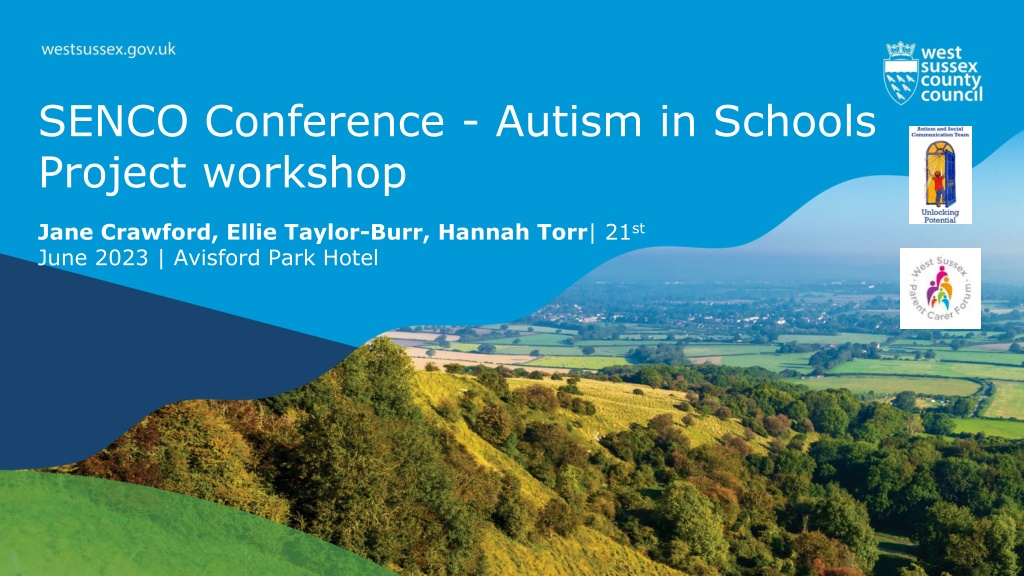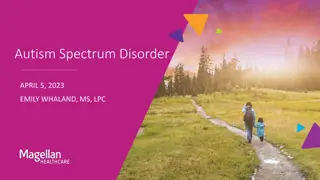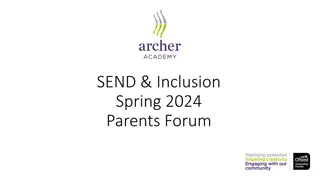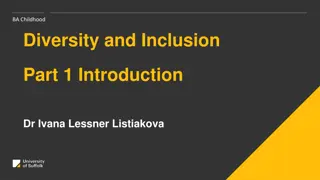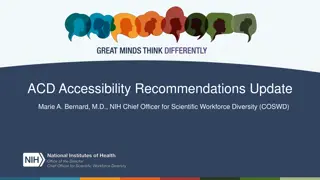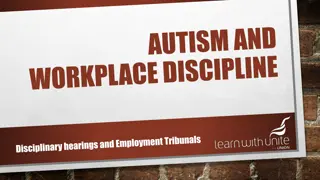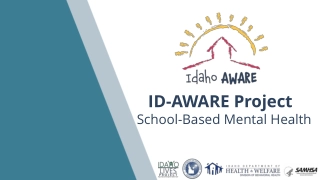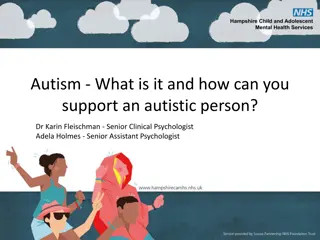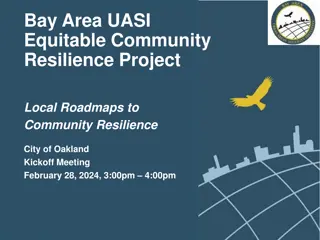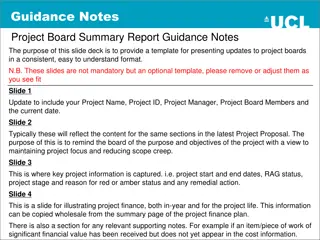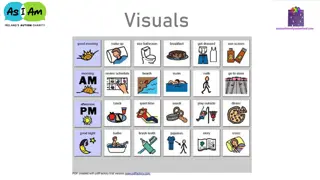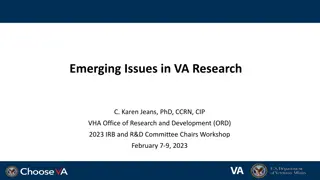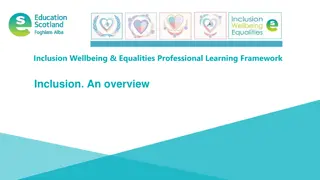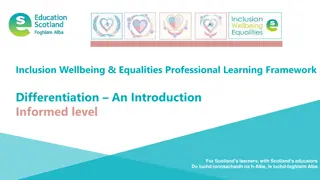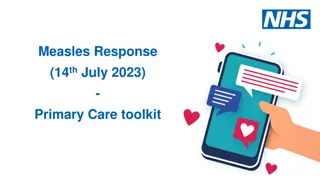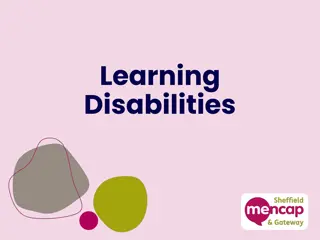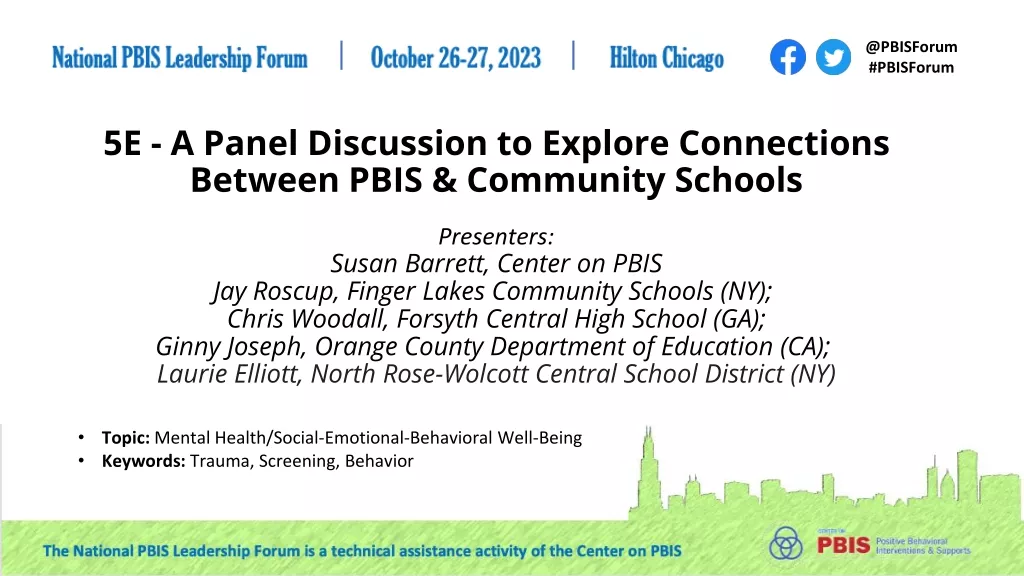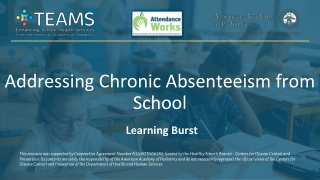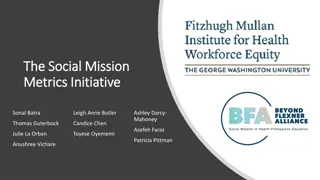Supporting Autism Awareness and Inclusion in Schools Project
A project focusing on addressing the needs of autistic students in mainstream schools to reduce exclusions and improve outcomes. Initiatives include creating support networks, providing training for schools and parents, and developing awareness and skills in autistic children. The project also emphasizes creating sensory-friendly environments and involving stakeholders in decision-making. By promoting acceptance and understanding, the project aims to enhance educational experiences for all students.
Download Presentation
Please find below an Image/Link to download the presentation.
The content on the website is provided AS IS for your information and personal use only. It may not be sold, licensed, or shared on other websites without obtaining consent from the author. Download presentation by click this link. If you encounter any issues during the download, it is possible that the publisher has removed the file from their server.
Presentation Transcript
SENCO Conference - Autism in Schools Project workshop Jane Crawford, Ellie Taylor-Burr, Hannah Torr| 21st June 2023 | Avisford Park Hotel
Autism in Schools Project - An NHS England funded initiative To address the issue of mainstream schools failing to respond to the needs of autistic students, which evidence showed was leading to a high number of exclusions and was a key part of the journey to crisis and admission to inpatient settings. West Sussex County Council, linked with the West Sussex Parent Carer Forum (WSPCF) as a key partner, to work in coproduction with the aim of transforming school environments and ethos and upskilling school staff thereby increasing capacity of schools to meet the needs of autistic students.
The criteria we built our project plan on Build relationships and networks of support including setting up mini parent carer forums in participating schools and linking education, health and social care professionals. Create learning opportunities for schools and parent carer forums including training and alternative CAMHS support in schools. Develop Autism self-awareness and skills development in autistic children and young people and ensure their voices are heard -including small group work with autistic children and young people and their families. Relationships Learning Developing children/young people
Creating learning opportunities and developing acceptance All project schools working towards or have achieved Autism Aware Award. Bespoke training informed by parent carer, pupil and staff surveys Sensory environment audits carried out in all schools range of actions in response and schools reporting impact for all pupils. Now beginning to repeat. Secondary focus groups on specific curriculum subjects. Including parent carers in training sessions whenever possible. Piloting neurodiversity pupil awareness programmes LEANS and Future Minds
Sensory environmental audit key themes Clear space around interactive whiteboard Visuals contained within display boards, low arousal backing and content considered Low arousal space for regulating in classroom and out of classroom Consider impact of hanging displays e.g. washing lines
Sensory environment audit listen to the pupils FEEDBACK FROM ONE AUTISM AMBASSADOR GROUP: Pupil A finds it easier to focus on what is on display boards when they are contained within the boards. Otherwise he doesn t know if he is meant to be using the information. Pupil B commented that with too many colours, it is making my eyes blurry and regarding washing line displays too much from above . Pupil C described how he often feels claustrophobic in classes washing lines, lots of colour and tables in groupings can be a bit overwhelming. In one class the group noticed fewer displays and felt better. One commented Mr XXX has smashed it with displays
Embracing neurodiversity in school policies AAA programme and AET standards requires review of school policies Behaviour Policy, Accessibility Plan, SEND policy and SEND information report. Some of the key themes from reviews: Move to focus on learning self-regulation and descriptions of behaviours to reactions and dysregulated behaviours Acknowledgement of the sensory demands of school and adaptations can be made Alternative provision for sensory and socially demanding free time Descriptions of difference rather than difficulty
Impact Responding to autistic pupil voice from surveys schools recording actions in response and impact. Masking highlighted by Youth Forum to be shared with all staff now commonly discussing. Observable change in use of language from deficit based to strength based Staff confidence to adapt practice measurably improved. Sensory environment adaptations having positive impact on all pupils Year 2 example.
Impact -Feedback from our schools Many training evaluations showed a shift from deficit to strength based view of autism amongst school staff, particularly after the pupil and parent carer voice module: - Reflectingon autismstrengths - No high/low functioninglabelsshouldEVERbe used. - Children andyoung people voicewasverypowerful-theyarethe experts. Staffdeliveringneurodiversity peer awarenessprogrammesreport impactonwholeclass/yeargroup
Impact Feedback from our schools A junior school Head Teacher commented on the transformative impact of the project , Being involved in this project has had a profound impact on the way children with autism are seen and understood. It has moved our SEND provision on significantly and we will continue to build on the learning that we have undertaken as part of this project. One Head Teacher commented Staff vocabulary is evolving. They talk of children masking can see beyond what is facing them .are recognising elements in children and adjusting things in advance e.garound choice of activities ultimately staff can see we may have X number of diagnosed autistic children in school but we have others (some we know awaiting that diagnosis and others not yet ) where the changes we have made are helping without the need for anyone asking or us responding to a situation presenting itself
Building relationships and networks of support Partnering with West Sussex Parent Carer Forum
West Sussex Parent Carer Forum What can we learn about parent engagement from the Autism in Schools Project? Ellie Taylor-Burr, Project Coordinator, WSPCF
Why do SEND parents need 'extra' engagement? Many schools have parent coffee mornings already, and PTA groups why do SEND parents need their own one? What is it like being a SEND parent at a mainstream school? Isolation and need for peer support Parents' own needs for example, neurodivergence runs in families Not sure how to approach school In our starter survey, we asked: "How can working with parent carers be developed or strengthened in your child's school?" 64% of responses were based around one theme, and around half of those used the same word any guesses?
What did we aim to do? Our main focus was to set up a mini forum in each school, in order to: Empower parents to deal with issues in a proactive way Increase communication between school and parents Decrease isolation by bringing parents together Include all SEND families more sustainable Provide information, such as: Toby Silverman neurodevelopmental pathway OT specialist - sensory issues Ordinarily Available Inclusive Practice Autism in girls, and masking, including lived experience
Adapting to different demographics School A formal, parent-run mini forum Parents wanted formal group, including two confident parents keen to take the lead Mini forum will liaise with SENCO, providing evidence of parent voice to SLT School B school facilitates mini forum Parents felt a formal group was intimidating, and did not have capacity to run their own SENCO involvement increased positive working relationships and provided quick solutions School C no mini forum Barriers survey showed most parents can't commit to meetings e.g. due to work or childcare needs SENCOs committed to holding 'open space' in the diary each month for drop-in chats
What other ways did we increase engagement? New ways to reach parents e.g. school app/social media Parent Involvement Policy coproduced with parents ILP input form Southern Hub joining schools together Back to online sessions
Supporting schools and parents with the Mini Forum Pack Reflecting adaptive practice welcome letter reminding schools and parents that they can pick and choose which resources to use, and that this can change if parents would like to make the group more formal Informing parents large signposting section, session planning resources Empowering parents sheets such as the minutes template, speaker request form and school feedback form help parents make a difference in the school and get their voices heard.
Key Messages Proactive, not Reactive increasing approachability pays dividends Adaptability meet parents where they are Consistency it is worth it consider the difference you're making in the meantime
Developing self-awareness and ensuring autistic children and young people s voices are heard Pupil surveys becoming embedded in some schools practice and onus placed on class teachers/tutors to action and record impact Worked with aspens to develop a 6-week autism programme which aspens delivered to groups in first cohort. Now supporting all schools to deliver. Worked with City, University of London to measure impact on emotional wellbeing and engagement. Through online survey for pupils and their parent carers Over 30% established autism ambassador groups Short breaks funding for aspens half term transition emotional wellbeing
Developing self-awareness and ensuring autistic children and young people s voices are heard
Accepting Autism a total pupil production All about me group video.MOV
The Legacy The value of ensuring lived experience is harnessed across all training. Young people and WSPCF have reviewed all training and parental involvement in training has been empowering Supporting autistic children and young people to understand their difference and recognise their strengths is having a positive impact both on their self-esteem and ability to self-advocate. Autism ambassador groups in nearly half project schools. Working with whole school using AET standards has supported change policies, pupil and parent carer engagement, staff acceptance and confidence, whole school acceptance. However, no one size fits all. Changes made positive impact on all pupils Constantly learning from project -Initiatives continue to develop out of the project autism and bilingualism, EBSA pupil programme, locality focus groups, LEANS and Future Minds neurodiversity peer programmes, increased number of autism ambassador groups
